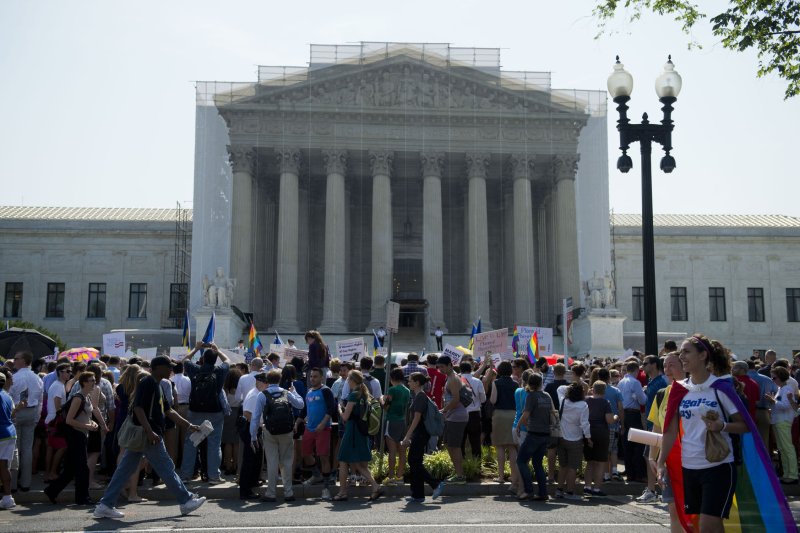1 of 2 | The Supreme Court has again declined to rule on gay marriage. File Photo by Kevin Dietsch/UPI |
License Photo
WASHINGTON, Jan. 9 (UPI) -- The U.S. Supreme Court once again postponed dealing with the issue of same-sex marriage, taking no action on petitions asking the justices to review lower-court rulings.
The justices met in conference in Washington as a federal appeals court in New Orleans heard arguments on bans on same-sex marriage in Louisiana, Mississippi and Texas.
The high court ruled in 2013 that the federal Defense of Marriage Act, which banned the U.S. government from recognizing same-sex marriages conducted in jurisdictions where they are legal, is unconstitutional. The decision opened the door for legal challenges to state laws, and this week Florida became the 36th state where same-sex couples can marry.
The Supreme Court is expected to take up the issue at some point because the 6th Circuit Court of Appeals upheld the laws in Kentucky, Michigan, Ohio and Tennessee that ban same-sex marriage. Every other appellate court that has decided a case so far has ruled the other way.
The justices could decide to hear some or all of the petitions now before them or wait for the new appeals that are certain to come to them.
In New Orleans, Kyle Duncan, a lawyer representing Louisiana, argued that no one knows what the unintended consequences of allowing same-sex couples legal marriage will be.
"Since we don't know, we should fear the unknown and we should ban it?" Judge James E. Graves Jr., the only Democratic appointee on the three-judge panel, asked.
Lawyers for the states also argued that gay couples cannot bear children and therefore should not be entitled to marriage. Judge Patrick Higginbotham asked Duncan why, in that case, a prison inmate with a life sentence can marry legally but a same-sex couple cannot.
Mark Phariss, one of the Texas plaintiffs, was at the hearing with his partner. .
"Vic and I knew when we came here today that we were on the right side of history and the right side of love and compassion, and on the right side of the law," Phariss told the Houston Chronicle outside the courthouse.















